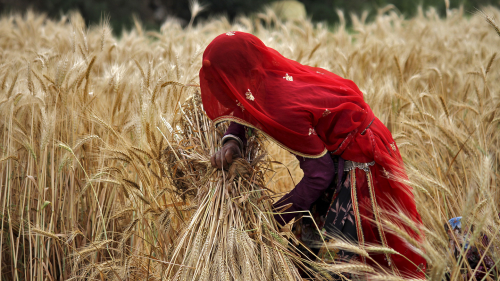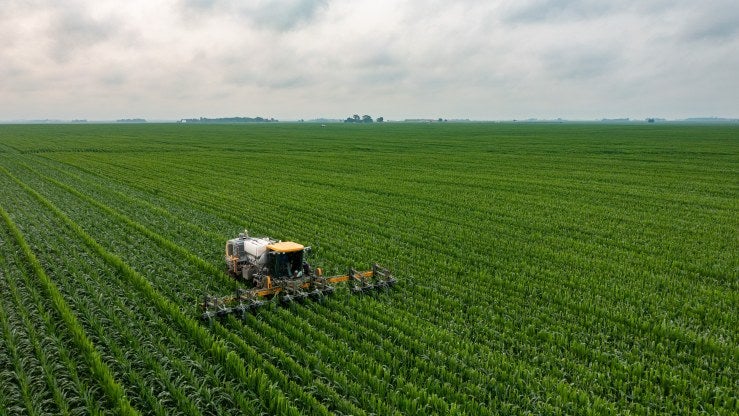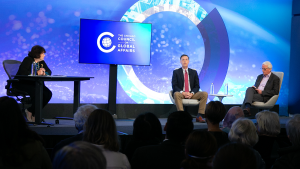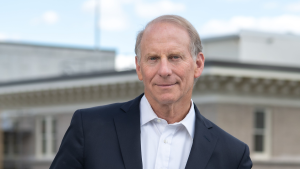Mad Cow, Ukraine's Anniversary, and Agricultural Innovation
Check out our roundup of the week's top news and research in food, agriculture, and global development.

Top Story
Global Hunger Crises: Looking Beyond Ukraine
Today marks one year since Russia invaded Ukraine, triggering food supply chain disruptions that reverberated around the world. By halting grain shipments and destroying valuable farmland and reservoirs, Russia directly contributed to widespread starvation and undoubtably exacerbated the global hunger crisis.
The effects of Russia’s war in Ukraine on the food system cannot be underscored enough, but it is also important to recognize that it is not the only event with calamitous effects on food supplies; Ethiopia’s war in Tigray, drought in the Horn of Africa, and earthquakes in Türkiye and Syria leave millions of people suffering from acute food insecurity, among other crises. If the world is to reach the UN Sustainable Development Goal of achieving zero hunger by 2030, international actors must pay attention to all people experiencing hunger, and mobilize additional support for crises beyond the war in Ukraine.
Council Insights
Agricultural Innovation
The United States should increase support for agricultural research and development (R&D) in the next Farm Bill to ensure that farmers can keep feeding the world in spite of challenges from climate change and other shocks, according to a new report produced jointly by Farm Journal Foundation and the Chicago Council on Global Affairs. Read the full report to learn about recommendations for how the Farm Bill can prioritize agricultural innovation and ultimately benefit the United States as a whole.

Food & Agriculture
Wheat Worries
India is allocating an additional two million tons of wheat to consumers who purchase in bulk in the hopes that it will lower local wheat prices. The announcement is in addition to the three million tons of wheat released by the government in January. India, the world’s second-biggest exporter of wheat, banned exports in May 2022 after a sharp, sudden rise in temperatures clipped output, even as export demand picked up to meet the global shortfall triggered by the Russia-Ukraine conflict.
Grain Slowdown
Grain exports from Ukraine have slowed markedly in recent weeks, pushing up global grain prices. The slowdown comes amid shipping delays and concerns about the looming expiration of the United Nations-backed Black Sea Grain Initiative to give food cargoes safe passage. While the number of exports has declined, the number of vessels waiting in the waters of Türkiye to either be checked or to join the Black Sea Grain Initiative has increased by 50 percent from January.
Kenya’s Crisis
The Integrated Food Security Phase Classification predicted that more than 5.4 million people and almost 1 million children in Kenya would likely experience acute food insecurity and malnutrition beginning in March. The current figure represents a 43 percent increase compared to the same period last year. The rise in food insecurity comes as the region experiences its sixth failed rainy season.
Deeper Dive
Why Is the Indian Government Concerned about Wheat?
After an extraordinary heat wave smothered much of India last year and forced the country to restrict wheat exports, producers are worried about more hot weather. With crops close to flowering, officials are warning that another heat wave could result in shrinking yield outputs. To prevent losses in the upcoming harvest, The Indian government set up a panel to monitor the impact of rising temperatures on the wheat crop.
Resilience
Smart Farming
South Korea and Senegal announced the launch of the Climate Smart Agriculture and Sustainable Value Chains in the Senegal River Valley Initiative, a $15 million investment in sustainable agriculture. The project aims to increase rice and horticultural production, while training over a thousand farmers in climate-smart farming practices.
DC Report
SNAP Restrictions
Millions of low-income Americans will soon receive less food assistance or completely lose their access to the Supplemental Nutrition Assistance Program (SNAP) as the pandemic-era payment boost ends. During the COVID-19 pandemic, states could allocate the maximum allowable benefits to SNAP recipients instead of applying deductions tied to income and other factors. The loss of benefits means an average cut of $82 a month in SNAP payments.
Big Actors
Mad Cow
Brazil is halting beef exports to China after animal health officials confirmed a case of mad cow disease in the northern state of Para. Officials believe the case was an atypical form of the disease, which appears spontaneously and poses no risk of dissemination to the herd or humans. Brazil is the world’s largest beef exporter and China is its primary export market, making the suspension of exports Brazil’s last resort option.
Big Ideas
Genetically Modified Trees
A San Francisco-based biotechnology company announced the first genetically modified trees in the United States to combat climate change. The company launched a fast-growing hybrid poplar tree that can capture more carbon than its unmodified counterparts. The company plans to move into trial phases by planting 60,000 seedlings in Georgia and Pennsylvania in 2023.
Ask an Expert
How are local and global food systems changing in emerging economies?
“Rapid urbanization, population growth, and rising incomes in emerging economies are changing local and global food systems. Among these changes is increased demand for food in cities that is affordable and safe. As [low- and middle-income] nations liberalize their markets and open their economies to foreign direct investment, international capital has been flowing on an unprecedented scale into the agrifood sector to meet this demand. A key feature of these investments is the transformation of agricultural marketing systems—the services and activities involved in bringing an agricultural product from the farm to the consumer.”
— Nonresident Fellow Hope Michelson in Are New Sourcing Strategies a Path to Inclusion?


Have a question about food and agriculture? Ask one of our experts at the Center on Global Food and Agriculture to get an answer in next week's Global Food for Thought!
Council Events
Did you miss one of our previous livestreams? Don't worry! They are all available on our website to watch at any time.
Other Upcoming Events
Ukraine One Year Later: The Impact of the War on Agricultural Markets and Food Security
Date: March 8
Time: 9:00 - 10:30 a.m. ET
All Things Food at SXSW 2023
Date: March 12
Time: 9:30 a.m. – 8:00 p.m. CT
Groundwater: Potential and Pitfalls for Africa
Date: March 20
Time: 8:00 – 9:30 a.m. ET
Water & SDGs – Downscaling WATer Relevant SDGs (DWAT-SDGs)
Date: March 20
Time: 10:00 – 11:00 a.m. ET
2023 NE Farm to Institution Summit
Date: April 18 - 19
Land Acknowledgement Statement
The Center on Global Food and Agriculture recognizes it occupies the ancestral land of the Kiikaapoi, Peoria, Kaskaskia, Bodwéwadmi, and Myaamia people. Indigenous communities around the world disproportionately experience the pressures of climate change, global conflicts, and the COVID-19 pandemic, while simultaneously stewarding 80 percent of the world’s biodiversity. These Indigenous tribes and nations are the original owners of this land and continue to be systemically erased by policies and practices that ignore their histories. To learn more about Indigenous foodways and practices, check out our 2022 blog series "Stewardship, Sovereignty, and Solutions."
Related Content
- Embracing Dandelions as Food and Medicine
- Going Beyond Regenerative Agriculture on Tribal Lands
- Expanding "638" to Enhance Native American Food Sovereignty
- Flavors and Culture: Food Systems Through Indigenous Women's Eyes
- A Thanksgiving Legacy: Fighting for Indigenous Food Sovereignty
- Native Food Sovereignty: Strengthening Connection to Culture
- Reconnecting to Indigenous Food Sovereignty Values and Practices
- Embracing Interconnectedness: How Indigenous Foodways Can Save Us





